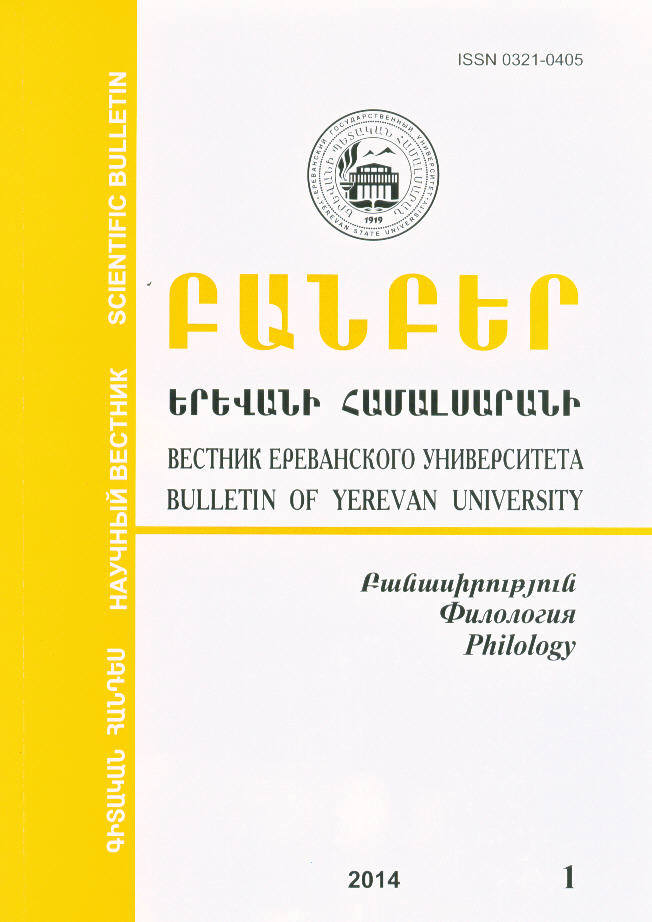George Vardapet Meghrik's Language of Prayers
DOI:
https://doi.org/10.46991/BYSU:B/2014.5.1.050Keywords:
George Vardapet Meghrik, monk-hermit, reformer of the church, writer, author of prayers, word creation, neologism, manuscript, recoverd textAbstract
George Vardapet Meghrik (Sevantsi, Drazarktsi) is a little-known but extraordinary Armenian spiritual leader of XI-XII centuries, a monk-hermit, teacher, translator, writer, reformer of the church, who was called Meghr or Meghrik (“honey” in Armenian) by his contemporaries because of his sweet language and good character. According to various sources, he was born in 1043 /45 in the village Analyur of Vaspurakan region in the territory of Greater Armenia. At the age of twenty he decided to become a monk and entered the Monastery of Sevan. At the end of XI century he moved into Cilicia, becoming the colleague and the favourite of the Catholicos Gregory II Vkayaser who insisted that he settled in Parlah, after that in the Red Monastery Shughr, which was the throne of the Catholicos in the years 1105-1116. He spent the last years of his life in the Monastery of Drazark, which he turned into a temple complex and there he wrote the Lawbook of Drazark’s monastery. He spent the last years of his life in the Monastery of Drazark, which he turned into a temple complex and there he wrote the Lawbook of Drazark’s monastery. Due to his efforts, Drazark became an educational and cultural center in Armenia. From his little heritage only
a few works have been preserved – a few prayers, songs, among which the most valuable ones are “The Book of Prayers” and “Words of Confessions” written in refined Grabar. We have restored the text of the prayer «Words of Confessions» on the basis of two manuscripts of Matenadaran, one of which is the oldest – written in 1297, № 640 and the second– № 2607, a more holistic one although written later.
Downloads
Published
How to Cite
Issue
Section
License
Copyright (c) 2021 Bulletin of Yerevan University

This work is licensed under a Creative Commons Attribution-NonCommercial 4.0 International License.

